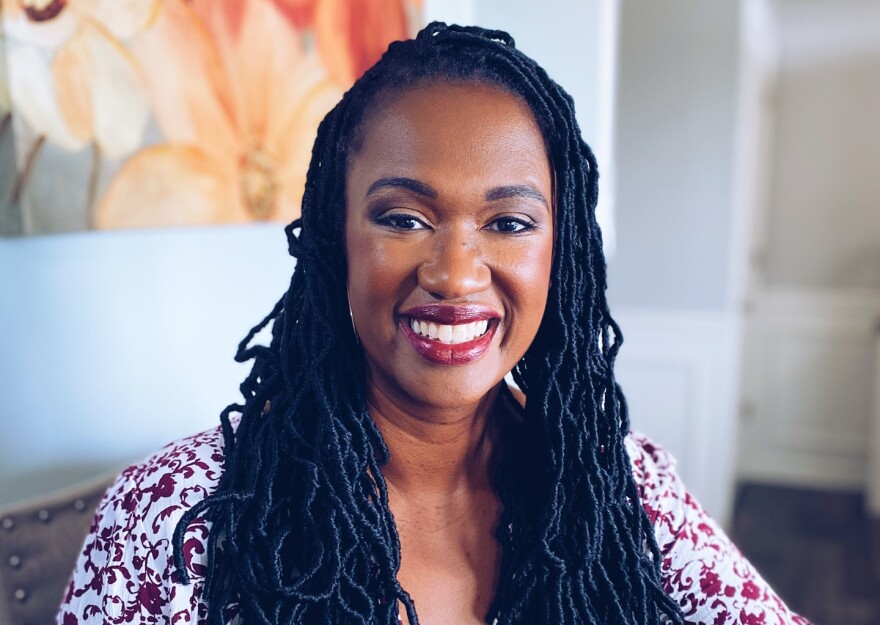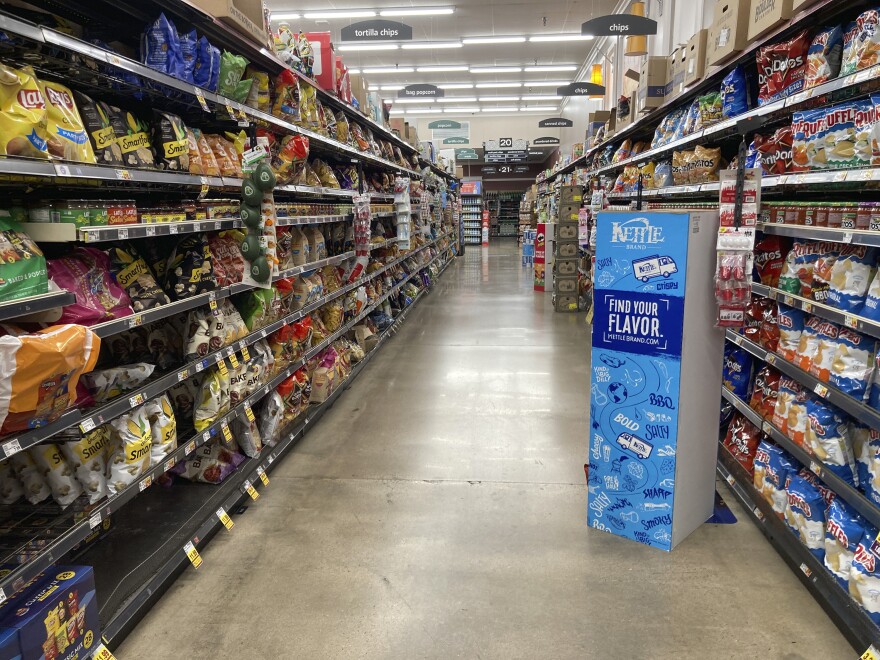Nearly half of the people on the federal Supplemental Nutrition Assistance Program — also known as SNAP — experienced food insecurity during the pandemic. That’s up from a quarter of recipients prior to the COVID-19 outbreak.
Dr. Rachel Goode is an assistant professor at the University of North Carolina Nutrition Research Institute. She interviewed a group of SNAP recipients who had a body mass index of at least 25kg/m2 as part of a study on eating disorders among overweight recipients. WFDD’s Paul Garber spoke with Dr. Goode about her research.
Interview Highlights
On what participants said they experienced:

Dr. Rachel Goode of the UNC Nutrition Research Institute interviewed SNAP recipients to learn about their eating behaviors during the pandemic. Image courtesy of Dr. Goode.
"There was a lot of fear, exhaustion, I think they were really trying to figure out how to make ends meet, how to stretch a limited amount to be able to feed more people. Now that their children were home more than they used to be, then they had the additional burden of feeding them for lunch and breakfast when some of those responsibilities would have been taken care of at school. And also just still thinking about their own weight journeys. You know, how they're feeling about their bodies, all of those things are still coming and still on their minds. Folks who are experiencing food insecurity have an increased risk for eating disorder pathologies. Often folks were cutting meals, were eating things that maybe wouldn't fill them up. But they were cheap. And they could afford them. And so then we noticed that our participants described having challenges managing binge eating."
On stereotypes surrounding SNAP recipients, weight gain, and binge eating:
"What I think I want people to recognize is one, the binge eating is a response to the body not having enough food. So the binge eating happened because they were managing ... their body was like, you're not feeding me enough, I don't have enough to eat. And so to keep you alive, often the body will respond with a physiological response that, where folks feel like I have to eat and the body says 'I need you to stay alive.' But if folks feel distressed, they feel guilt, they feel out of control."
On the hardships SNAP recipients face in getting healthy food:
"I think there's a couple programs that we actually already have developed that I don't know if many people are aware of. For one: the Double Up program. So that's where SNAP participants can receive matching funds for dollars spent on fruits and vegetables. I don't think many folks know about that ... And then I think we have an opportunity to think about and give participants, I think, more agency and the frequency and the timing of when benefits arrive. I know probably once a month might be systematically more efficient, but folks are having challenges kind of navigating and balancing and being able to ensure that they have adequate enough resources."
On what is actionable about the study:
"We're actually hearing from SNAP participants who, in addition to managing not enough food, they're also managing living in a larger body. As I heard their stories, it felt cruel that they were having to balance both of those things. And I'm hoping that the study just continues to push us into a place where we have more evidence that can arm us so they know what folks are experiencing."

